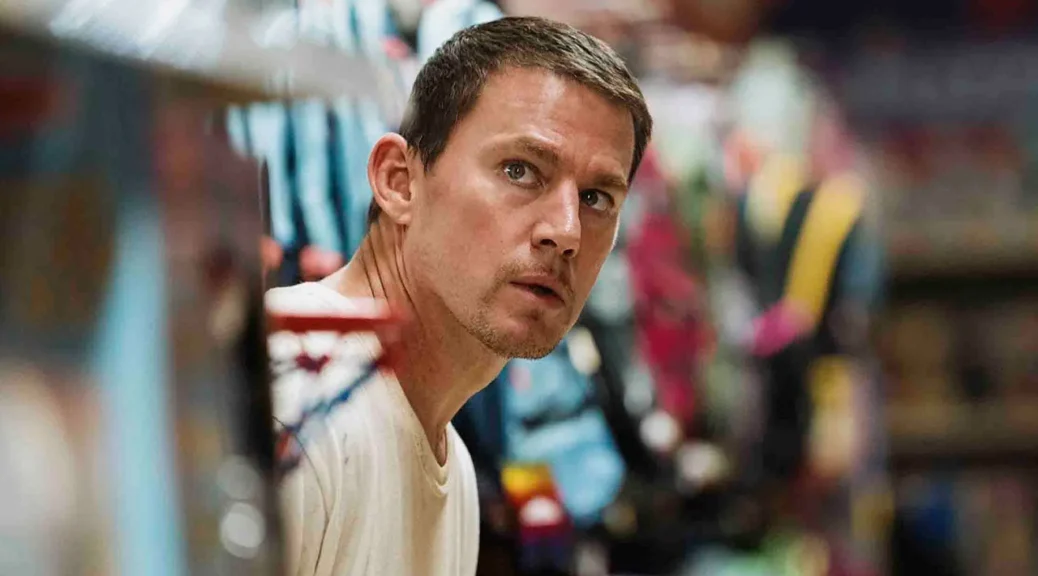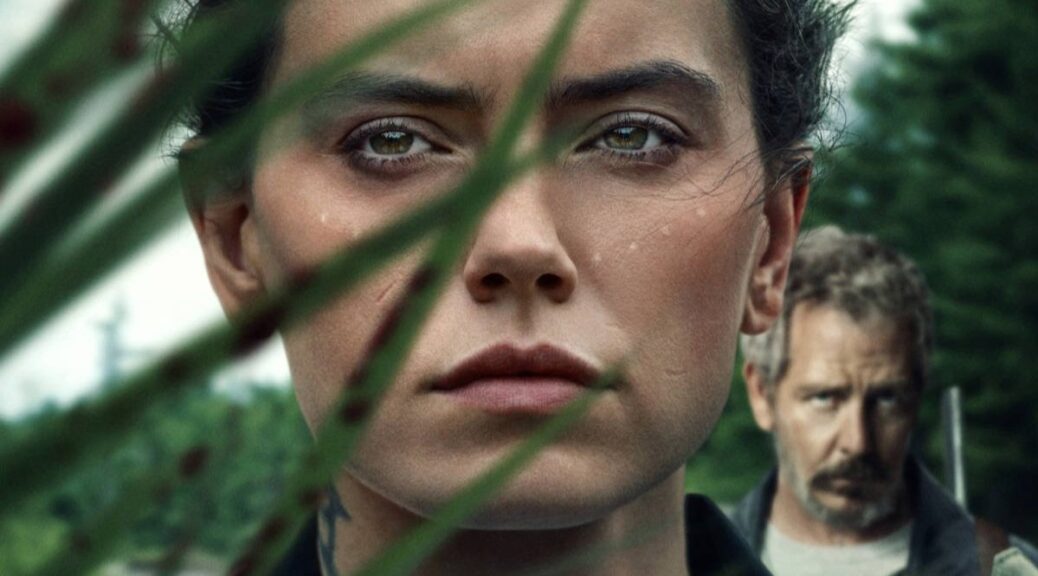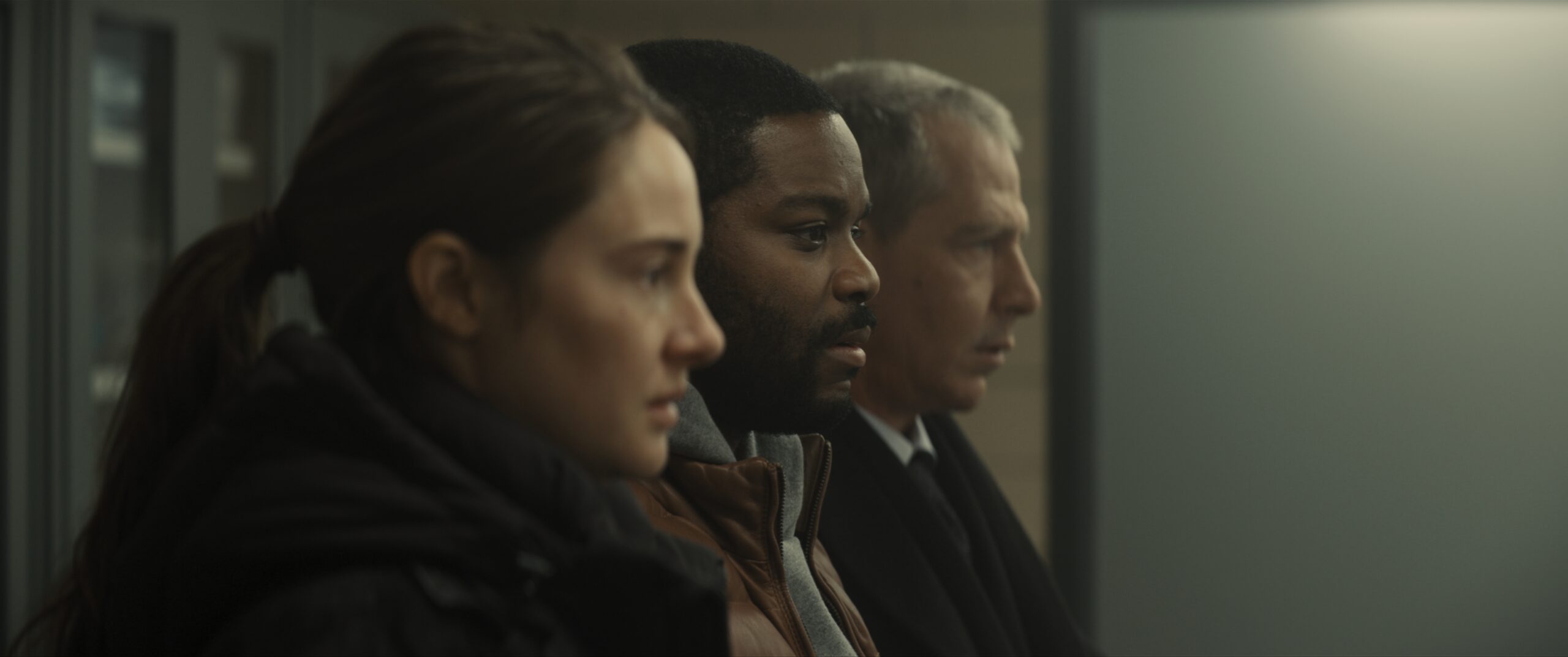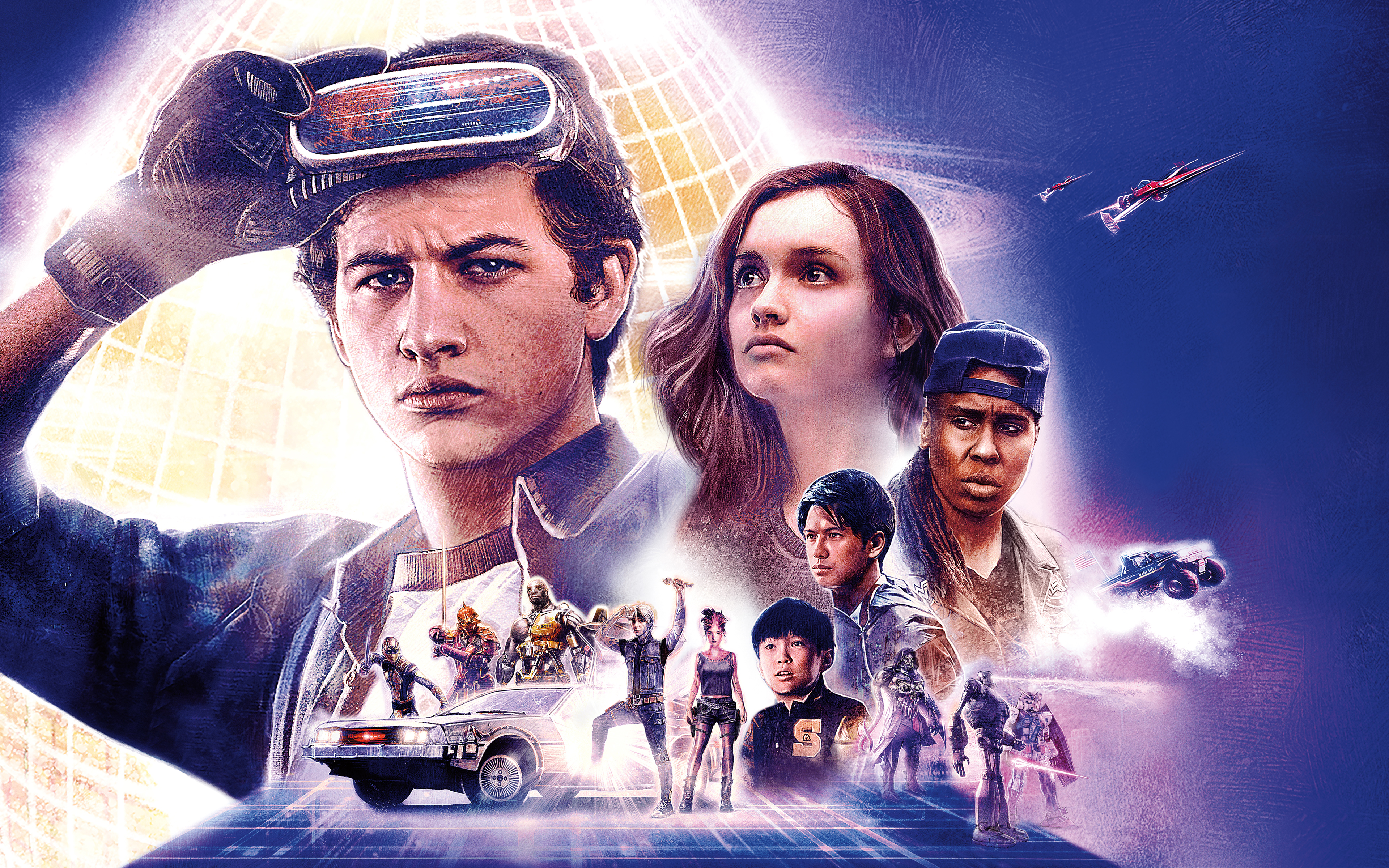Roofman
by Hope Madden
It’s been nine years since Derek Cianfrance directed a feature, but he’s still drawn to beautifully impossible tenderness and insurmountable longing. This time, though, the story is true.
Roofman, which Cianfrance co-wrote with Kirk Gunn, tells the somehow delightful story of Jeffrey Manchester (Channing Tatum). In 2000, Manchester was convicted of breaking into a series of McDonald’s locations by drilling through the roof. Like the gentlemanly true-life bandit of Old Man and the Gun, Manchester is remembered by his victims exclusively as a good guy.
That didn’t lighten his sentence, but no matter, because by the beginning of Act 2, the real story begins with Manchester on the run and living inside a Toys-r-Us.
Cianfrance and Gunn keep pretty close to the real details of the case, perhaps because the story’s nutty enough as is, or maybe because it’s not the story beats they’re looking to explore. Roofman is a film more fascinated by the human than the criminal, and Tatum’s characterization brims with humanity.
Channing Tatum can be hit or miss, but his strongest performances are those that allow him to find both vulnerability and humor in a character. He’s never been better than in Zoë Kravitz’s Blink Twice, where he tinged his techbro narcissist with just enough amiable doofus to be truly terrifying. But his turn in Fly Me to the Moon sank because he was the handsome, brilliant straight man—not funny, not dumb, not broken.
Luckily, Cianfrance understands Tatum’s strengths and Roofman offers the actor ample opportunity to be all three of those things. The result is an affable, broken sweetheart of a crook you can’t help but root for, even though you know he’ll probably shoot himself in the foot.
Tatum’s not alone. Kirsten Dunst is steal-the-show wonderful as Leigh, the Toys-r-Us employee Jeffrey falls for. Peter Dinklage is a ton of fun as Mitch, unfeeling store manager with a weakness for No Doubt. Ben Mendelsohn turns up in a small but entertainingly off-brand character. And as Jeffrey’s army buddy Steve, LaKeith Stanfield’s weary, wiry performance offsets Tatum’s lovable dumbassedness as a stark reminder of the type of person who can survive as a criminal.
Like Blue Valentine and A Place Beyond the Pines, Roofman is another romantic look at good dads who make bad decisions. Cianfrance may be preoccupied with one story, but he does tell it well.











